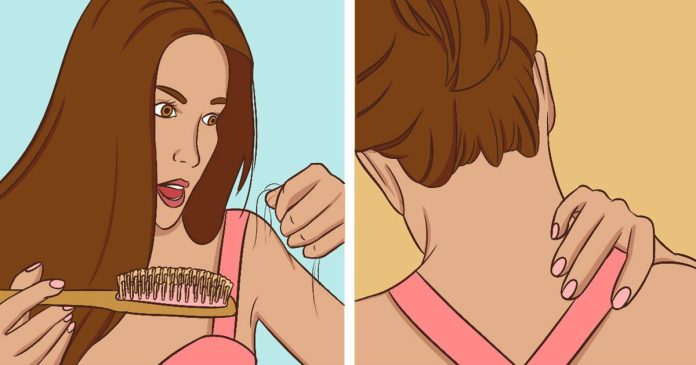The best way to get all the vitamins your body needs to function properly is to eat a healthy, balanced diet. In fact, one of the main reasons many people suffer from vitamin deficiencies is that they eat an unbalanced diet. However, even if you do eat a healthy, balanced diet, the way foods are stored, lack of freshness and processing can have a major impact on the vitamins your body absorbs.
The following list explains the importance of certain vitamins to your health, what symptoms a deficiency can cause, and what foods you should eat to restore your vitamin levels. Supplements are available, but it is usually best to get them naturally from food.
If you have any of these symptoms, seek your doctor’s advice, as it is impossible to determine if you are deficient in vitamins. With the guidance and supervision of your doctor, you can manage the deficiency in a way that works for you.

Vitamin B12
Vitamin B12 is important because it helps with the production of DNA and the production of new neurotransmitters in the brain. You may be surprised to learn that this important vitamin is not produced naturally in the body. We rely on food to get sufficient amounts of vitamin B12 to maintain good health. But what are the signs of a deficiency?

Magnesium.
Magnesium detoxifies the body of environmental toxins and helps prevent migraines and cardiovascular disease. According to some studies, it may even reduce the risk of diabetes in people at high risk. However, despite its incredible benefits to our bodies, 80% of us are deficient in magnesium.

Vitamin D
Vitamin D is a nutrient that we often forget to think about because it is produced by the body as a natural response to sunlight. However, since 2000, new studies have shown that vitamin D deficiency is actually widespread. This affects older people as well as those who regularly use sunscreen. This is because people produce less vitamin D as they age, and older people spend more time indoors. The only way to know if you are vitamin D deficient is to have your blood checked.

Iron
Iron is important for your body to produce the red blood cells it needs. A lack of iron can cause serious problems because it cannot carry enough oxygen.

Calcium.
Drink milk Calcium is an essential nutrient for maintaining healthy bones. Calcium is essential for maintaining healthy bones, but it also controls muscle and nerve function. Bone density decreases with age and calcium deficiency is common.

Folic acid
Folic acid, also known as folate, is a vitamin that is important for pregnant women and women of childbearing age. Folic acid helps maintain normal cells and red blood cells, and a decrease in folic acid can lead to neural tube defects in the fetus. Folic acid is water soluble and cannot be stored in the body for long periods of time. The excess is simply excreted as urine. This means that folic acid can be depleted within a few weeks if not constantly supplemented.

Vitamin C
Taking vitamin C with a cold will not speed up a viral infection, but vitamin C has many benefits that are often overlooked, such as preventing eye disease and wrinkles. Vitamin C deficiency can lead to a host of health problems.

Potassium.
Potassium helps all muscles, including the heart, work properly. Potassium in the blood helps control blood pressure. Potassium deficiency can lead to a range of health problems, including heart palpitations and cramps. Take every precaution.

Vitamin A
Vitamin A is found in many of the fruits and vegetables that people commonly eat today, but most people probably don’t give much thought to whether they are getting enough of it in the foods they eat. Many people may never think about the consequences of a vitamin A deficiency. Try not to do what many people do.










